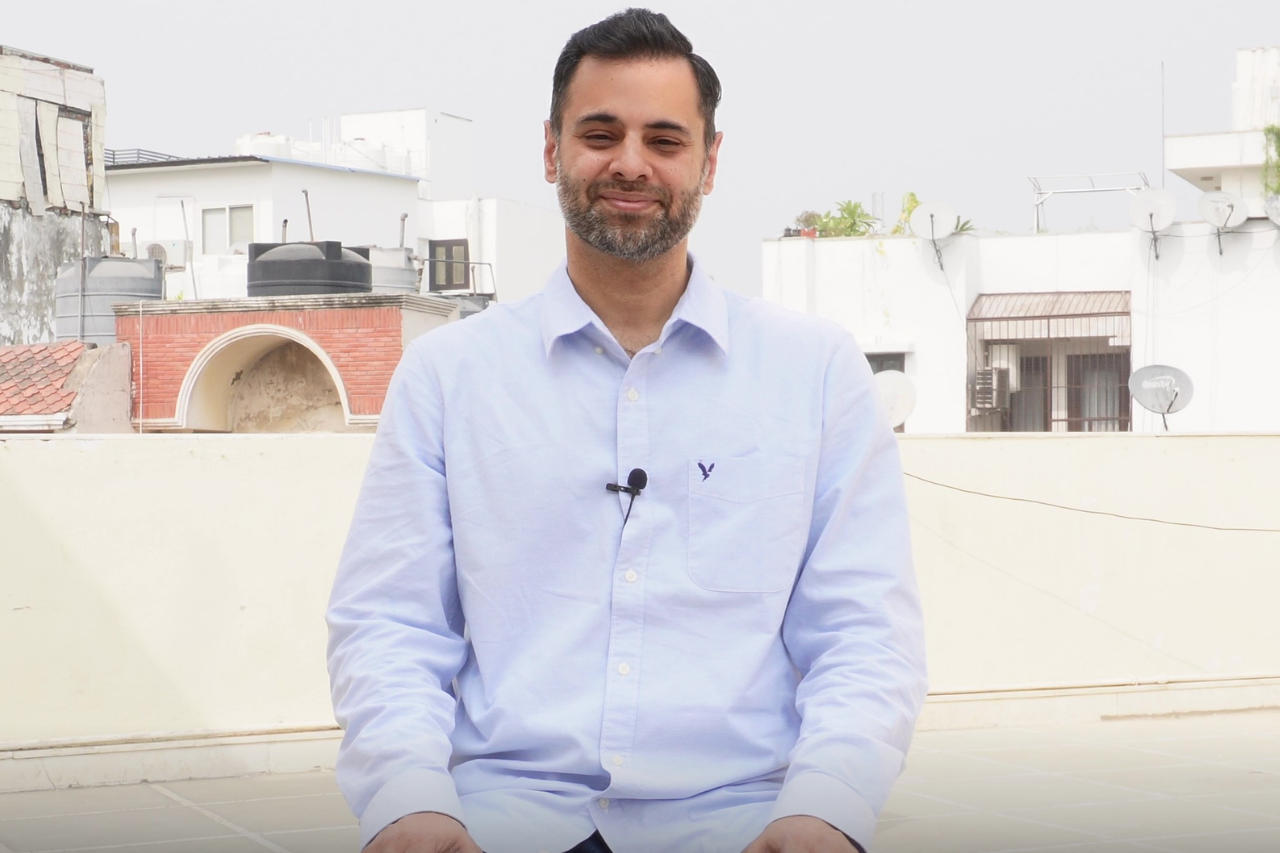Benjamin: What is non-doership? If I am not the doer of actions, who is? How can I understand this concept, and in what way can it help me in my daily living?
Jagjot: Non-doership is the idea that we’re not the doer of our actions. Actions apparently happen through the psychophysical organism, but the sense of personal agency or individual that believes itself to be the doer is not real.
There is a misconception that spiritual awakening is the end of pain. Spiritual awakening is simply the realization that one is not the doer of their actions. The actions happen through the mind-body organisms as per the cosmic law or the Will of the “one” or source.
Ignorance is the belief that one is the “doer.” Let me elaborate on this with an example. I write articles on Advaita or Non-Duality with the understanding that the source is producing thoughts for the content. The psychophysical organism called Jagjot is simply an instrument in the hands of “one,” merely executing its Will.
With this understanding that one is not the doer, there is a drastic change in the attitude, and the natural outcome is peace of mind in daily living. How? When I know that I’m not the writer or speaker, I don’t take responsibility for what I write or speak, knowing that every thought arising in my consciousness is from the source.
On the surface, this idea seems like a bad thing. In fact, it seems arrogant and narcissistic. What if your article or speech hurt someone’s sentiments? Aren’t you going to take responsibility? And here’s the answer.
If my writing, speech, comments, or any other action hurts someone in the moment, there is a natural sense of regret, and nothing stops me from apologizing to that person out of compassion.
But knowing that the hurt caused to the other person through my mind-body complex is not “my” action but the Will of the source, I don’t live with a sense of guilt or shame, and neither do I blame anyone else for the actions that happened through me.
At the same time, when people appreciate my work or actions, there is a natural sense of pleasure and gratitude, but it never leads to arrogance or pride, knowing that I was only the instrument executing the divine Will.
So this concept frees me, the individual, from a load of guilt, shame, pride, and arrogance. It stops my mind from ruminating on the dead past or imaginary future. It keeps me rooted in the reality of now.
The problem is that we perceive ourselves as the doers and give ourselves the responsibility to “fix” the world through our doership. In the modern world, we have immersed ourselves in doership, and hence, suffering is rampant everywhere.
Non-Doership Does Not Mean Inaction
Please note that non-doership does not imply inaction. The conditioning of life is such that inaction is impossible. Are you capable of doing nothing? You can’t. Even when you are not psychically doing anything, your mind keeps thinking incessantly.
You are incapable of inaction. The action has to happen through the mind-body organism to keep it running efficiently. For example, you have to work out if you want to lose weight and have a chiseled physique. But whether it’s possible in your particular case is not in your control. How long will it take to achieve that is also not in your control.
When you work out with the understanding that you’re not the doer and the outcome is not in your control, the journey becomes much more beautiful, creative, and pleasant, as opposed to doership, where the attachment to the outcome creates continuous pain.
So when you achieve the desired result, you don’t claim it happened because of “your” efforts. Therefore, there’s no question of arrogance and pride. And in case of failure, there’s no guilt or shame.
You well know that some people, despite your success, will always be critical. But with the understanding, there’s no suffering. With doership, you create an attachment to your new image (of a perfectly chiseled body in this example) and suffer the mental anguish of protecting it at all costs.
If you fail to upkeep this image in the future, you don’t beat yourself for failing because you know that you’re not responsible for it. You can apply the same to your profession, work, relationships, or other aspects of life and living.
Therefore, nothing should stop you from doing what you think needs to be done in a given situation. But do it with the firm conviction that the outcome is not in your control. Doership is all about control. Non-doership is letting go of control.
The greatest sin is the individual thinking of themselves to be the sole doer by assuming the Will of the source.
Our doing anything depends on a lot of factors beyond our control. For example, there are days when I don’t get ideas to write anything. It also depends on how I am feeling at that moment.
Sometimes I feel tired. Sometimes there’s an emotional overwhelm or exhaustion. Poor internet connection. Sometimes I work out of cafes, and there’s too much commotion.
All of the above conditions are not in my control. Therefore, I act in cooperation with nature, which further acts as per the Will of the source.
My point is that our role in action is minimal. Yet, the ego loves to take pride in success and guilt in failure, claiming to be the sole doer. And this misunderstanding or ignorance creates suffering. Please don’t take my words for it. Verify this with your personal experience.
"All activities are carried out by the three modes of material nature. But in ignorance, the egoic individual, deluded by false identification with the body, thinks of itself as the doer" - Bhagavat Gita (Chapter 3, Verse 27).
Benjamin: But won’t people use this concept as an excuse to commit crimes and evade responsibility?
Jagjot: Suppose someone uses the concept to commit crimes and evade responsibility. In that case, it is the highest sense of doership because one is deliberately using the concept as a shield to escape punishment.
If the individual thinks that he is the “doer” of their actions, then the same individual is also the receiver of consequences. So there is no question of escaping the punishment as per the law of society. Karma exists only for the individual.
The following quote from Buddha beautifully summarizes this concept. It says, “Events happen, deeds are done, and consequences also happen, but there is no individual doer thereof.”
The ego operates by pinning the blame on an object (place, person, thing, feeling, etc.) and condemning it. “He/she is responsible for my miserable condition,” “He/she ruined my life,” and so on.
If the ego can’t find anyone else to blame, it starts blaming itself – “It’s my fault,” “I shouldn’t have done that,” “only if I were like that person I would have such a good life,” and so on. That is how pain in the moment manifests as suffering in horizontal time.
The above are examples of what is called the thinking mind, which is a constant source of pain and misery. So what spiritual awakening does is that it annihilates the ego with the realization that one is not the doer.
All actions, good, bad, or neutral, arise from the source, are executed as per the Will of the source, and humans are simply the instruments through which this divine energy expresses itself.
This understanding, in and of itself, brings about a tremendous sense of peace because when we’re not the doer of our actions, even the others are not the doers. It changes our relationship dynamic with others.
As this understanding goes deep, it destroys the individual’s egoic concepts of blame, shame, guilt, malice, jealousy, hatred, and condemnation. Not only that, but it also changes our relationship with ourselves. We can only be at peace with others when we are peaceful with ourselves.
Sense of doership is painful because the individual assumes God’s (source) Will. It lives in the delusion that it knows everything and that it alone has to find a solution to all problems. The idea of changing others without looking at oneself is doership at its core.
"The pure Bliss of peace will shine within only for those who have lost the sense of doership. For, this foolish sense of doership alone is the poisonous seed that brings forth all evil fruits" - Guru Vachaka Kovai (Teachings of Shri Ramana Maharshi)
The above article is an extract from my e-book, I Hope You Get Nothing Out of This, which is available on Amazon Kindle.

